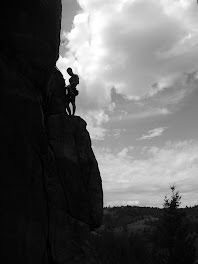ast night was my first class for Connectivism facilitated by Stephen Downes and George Siemens. Along with about 50 other students on Elluminate I was quite excited and honored to be included in this "ground breaking" opportunity to participate n an open education/course-ware class. Even though this class is open we still have certain expectations and requirements that we have been asked to meet in order to enhance our learning experience, one of them is that we blog or conduct some other collaborative initiative in order to achieve the outcomes of the course. Actually that is the easy part for me! I have the following sites with blogs: cathyandersonblog.com, www.cathyanderson.com and I am on Twitter as cathlanderson.
To be honest I had forgotten that this class was starting this month until I checked my email yesterday notifying students about the evening's Elluminate session. What delighted me a great deal was that very morning I had been spending some time researching different collaboration tool available via Web 2.0 and what had initiated that was the fact that I had been reading the 2008 Horizons report the night before. I am intrigued by the rise in Collaboration tools via the web in addition to the variety of other tools I have been researching, when I have a chance to "squeeze" that into my day. In addition to researching these tools I have also been testing another tool, Evernote in order to keep and organize my findings.
Connectivism is a new learning theory coined by George Siemens. According to Stephen Downes' blog Connectivism is; the thesis that knowledge is distributed across a network of connections, and therefore that learning consists of the ability to construct and traverse those networks....shares with some other theories a core proposition, that knowledge is not acquired, as though it were a thing. Hence people see a relation between connectivism and constructivism or active learning (to name a couple). Given this I see a real connection between my research on collaborative web tools and the focus of this course. Further linking my search for collaborative web tools I jotted down the definition of collective intelligence, which I see linked to connectivism as wel, from Wikipedial it is...Collective intelligence is a shared or group intelligence that emerges from the collaboration and competition of many individuals. Collective intelligence appears in a wide variety of forms of consensus decision making in bacteria, animals, humans, and computer networks. I like the fact that this definition also notes the "competition" that sometimes needs to occur as this does not denote "group think," or the "hive mind" type of thinking that is defined as inWikipedia .." a type of thought exhibited by group members who try to minimize conflict and reach consensus without critically testing, analyzing, and evaluating ideas. Individual creativity, uniqueness, and independent thinking are lost in the pursuit of group cohesiveness, as are the advantages of reasonable balance in choice and thought that might normally be obtained by making decisions as a group.
The Horizon 2008 report notes that "the way we work, collaborate and communicate is evolving as boundaries become more fluid and globalization increases. Further driving these changes is the portability of tools that we can use to access content and the Internet which will facilitate and enhance our ability to collaborate and work together. Other notes that I made on the report that are integrated with the course are:
The renewed emphasis on collaborative learning is pushing the education community to develop new forms of interaction and assessment
The "academy" is faced with a need to provide formal instruction in information, visual and technological literacy as well as in how to crate meaningful content with today's tools
The growing use of Web 2.0 and Social Networking ---combined with collective intelligence and mass automation is gradually but inexorably changing the practice of scholarship
Doing this sort of research on the web is sometimes exciting, but more often than not overwhelming and the availability of these tools is no exception. Evaluating and separating the useful from the useless, as Barry Dahl would say, is the challenge. It is a time of great change in how we work together, access information (or how information comes to us), on the web, and the tools we use to access that information, and how we build knowledge. I can think of no better time to be an "addicted" researcher and have a passion for education and "trying" to follow these trends.
Steampunk Adventures back from a real life interruption!
-
Hello everyone, I can’t believe that I have not posted anything here since
June of 2011! So much has happened in the past several months..real life
has ce...
14 years ago





No comments:
Post a Comment